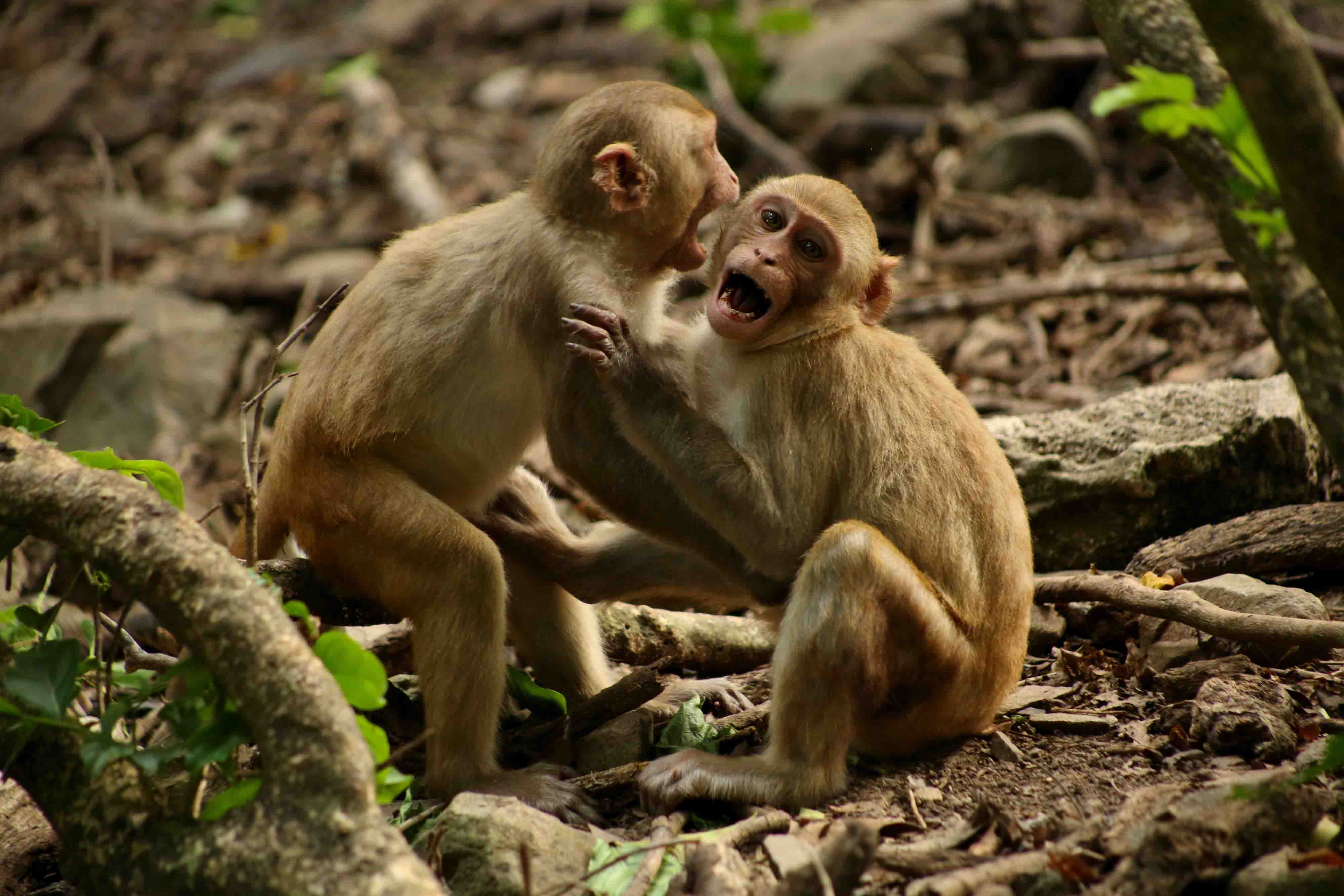
AlyssaArre
Cayo Santiago — a small island off the coast of the Puerto Rican mainland and a popular fieldwork site for Yale primate researchers — was directly hit by Hurricane Maria last month. The hurricane made landfall at the height of its power, subjecting the island’s population of more than 1,000 macaque monkeys to devastating 150-mph winds.
“Amazingly, most of the monkey population seems to have survived, but all of the infrastructure on the island — the labs where researchers do work, the water systems to get the monkeys fresh water, everything — was totally destroyed,” said psychology and cognitive science professor Laurie Santos, whose research at the Yale Comparative Cognition Laboratory explores primate cognition.
Alyssa Arre GRD ’23, a psychology graduate student who spent the summer conducting fieldwork at Cayo Santiago, which is home to the longest running primate field site in the world, said it was remarkable that a large majority of the macaques survived, despite the destruction of the island’s vegetation and contamination of the island’s freshwater sources with saltwater.
The Cayo Santiago Biological Field Station, which is located in the mainland town of Punta Santiago, also incurred serious structural damage. And many of the station’s staff members suffered damages to their homes and are running low on essential supplies.
“Right now, there’s a lot of concern around the staff of the island and the locals of Punta Santiago because, like the rest of Puerto Rico, they’re pretty much stranded and really having a hard time getting enough food, water, supplies,” said Shireen Roy ’19, who also conducted fieldwork at Cayo Santiago this summer. “Some of the staff members have lost everything.”
For Roy, seeing the destruction was particularly hard in light of her experiences on the island. She also expressed admiration for the devotion and selflessness of the staff, who have continued to care for the macaques in the face of dire circumstances.
“The homes of many of the staff were damaged by Maria, including one staff member whose house was completely destroyed,” said Angelina Ruiz-Lambides, the scientist in charge of the field station. “Yet the staff got the boat in the water to feed the monkeys a day after the storm and have been working hard ever since.”
Following the hurricane, Santos said a team of researchers from New York University and the University of Pennsylvania surveyed the extent of the damage to the island via helicopter. Since then, researchers have been raising money to help the staff at Punta Santiago and to ensure that the macaques receive critically needed supplies, such as fresh water.
In addition to conducting a full census of the monkey population, researchers on the island have been working to repair the field site’s water collection and delivery system and to clear debris from pathways, according to Ruiz-Lambides and Lauren Brent, a lecturer at the Centre for Research in Animal Behavior at the University of Exeter.
The active data collection process on the island has halted for the moment, and rebuilding the site will take some time, Arre said. She added that her current priorities include delivering essential supplies to the island and ensuring all staff members’ safety.
Since the hurricane hit, she has coordinated efforts to deliver essential supplies like batteries, powdered milk and tools.
A large number of researchers in psychology and behavioral anthropology began their work at Cayo Santiago, Arre said, since the island allows researchers to conduct fieldwork with ready access to housing, food and water. Many of these researchers still feel connected to the island and have donated funds or offered help in the wake of the hurricane.
“It’s incredible, the outpouring of support,” Arre said.
Santos said it was touched to see how many former Yale students have donated to the hurricane relief efforts. But she warned that the entire site would be jeopardized if the facilities do not resume operation soon.
“It would be incredibly sad if we lost this enormous resource,” Santos wrote in her email. “We need to act now and act quickly in order to help this site and community, which has given science so much.”
Ruiz-Lambides said she hopes the hurricane will not have long-term consequences for the island and future research. To bolster recovery efforts, Ruiz-Lambides said she has been asking for continued support from colleagues, as well as the general public.
“It’s good to see that so much support has been generated for Cayo through social media, but there’s still so much work left to be done,” Roy said. “It’s really imperative that people in our positions of privilege kind of do everything we can to help.”
The GoFundMe page for relief for Cayo Santiago employees has raised more than $47,000 of its $50,000 goal.
Eui Young Kim | euiyoung.kim@yale.edu







